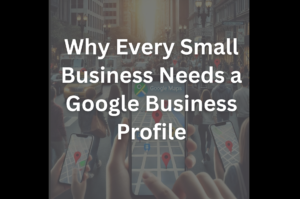**Disclosure:** We believe in honesty and transparency to the fullest extent. Some of the links on this blog are affiliate links, meaning, at no additional cost to you, we will earn a commission if you click through and make a purchase. This is one of the simplest ways you can support us.
Embarking on the journey of starting your own online business with zero employees opens up a world of possibilities and potential financial success. From e-commerce ventures to digital services, the realm of virtual entrepreneurship offers a diverse landscape for you to explore. In this guide, we will delve into seven profitable online business ideas tailored for aspiring entrepreneurs like you. Get ready to unleash your entrepreneurial spirit, carve your path in the digital marketplace, and build a thriving online business that requires no traditional workforce.
Embracing the Zero-Employee Business Model
The zero-employee business model is a game-changer for modern entrepreneurs. Without the need for a traditional workforce, you can minimize overhead costs and simplify operations. This means less time spent on human resources tasks and more focus on growing your business. Moreover, technology now enables automation of many processes that previously required staff. By leveraging tools like AI-driven customer service bots and cloud-based software, you can maintain a lean business structure. This efficiency often results in quicker scalability, allowing you to adapt and expand your offerings without the constraints of managing a large team. Additionally, you have the flexibility to work from anywhere, at any time, giving you the freedom to design your lifestyle as you see fit. This model is not just about cutting costs—it’s about optimizing your business for maximum growth and flexibility.
Understanding the Advantages
The zero-employee business model is a game-changer for modern entrepreneurs. Without the need for a traditional workforce, you can minimize overhead costs and simplify operations. This means less time spent on human resources tasks and more focus on growing your business. Moreover, technology now enables automation of many processes that previously required staff. By leveraging tools like AI-driven customer service bots and cloud-based software, you can maintain a lean business structure. This efficiency often results in quicker scalability, allowing you to adapt and expand your offerings without the constraints of managing a large team. Additionally, you have the flexibility to work from anywhere, at any time, giving you the freedom to design your lifestyle as you see fit. This model is not just about cutting costs—it’s about optimizing your business for maximum growth and flexibility.
Debunking Common Misconceptions
A common myth about the zero-employee business model is that it limits your company’s potential for growth and professional credibility. In truth, many of today’s most successful businesses have started and scaled without traditional employees. The key is in utilizing a network of freelancers, contractors, and automated services to create a flexible and responsive business structure. Another misconception is the belief that customer service suffers without a dedicated staff. However, customer satisfaction can actually improve when you use modern tools like CRM systems and chatbots, which provide speedy and consistent responses to inquiries. Lastly, some assume that running a solo operation means you’ll be working non-stop. While it’s true that hard work is essential, the integration of automation and outsourced services can actually result in more free time to focus on strategy and innovation. Let’s bust these myths and recognize the true potential of a zero-employee business model.

Freelance Writing: Expand your horizons by offering writing services across various platforms, including blog posts, articles, technical documents, and more. Utilize platforms like Upwork, Freelancer, and Fiverr to connect with clients globally. Diversifying your portfolio and specializing in niche topics can also enhance your marketability. To succeed, maintain a professional portfolio and seek continuous feedback to improve your skills.
If you are seriously considering making real money through freelancing then the books below are a must-have! Click the image below to learn more.



Blogging or Vlogging: Choose a niche that you are passionate about and consistent in content creation to build a loyal audience. For bloggers, platforms like WordPress and Blogger offer robust tools for content management and SEO optimization. For vloggers, YouTube provides extensive resources for channel growth and audience engagement. Monetization can be achieved through ads, sponsored content, and affiliate marketing. Growing a significant following is crucial for attracting lucrative sponsorships.
If you are seriously interested in growing a successful blog then leveraging tools like ChatGPT can help shorten the learning curve tremendously. Click the image below to hit the ground running!


Digital Product Sales: Leverage your expertise in areas like graphic design, programming, or educational content to create digital products. Tools like Shopify for e-commerce or Teachable for online courses can facilitate the sale and distribution of your products. E-books can be formatted and sold through Amazon, while digital art might find a platform on Etsy or Adobe Stock. Market research and promotional strategies are essential to reach your target audience effectively.
Creating and selling online courses offers an excellent opportunity to share your expertise while generating income. This business idea capitalizes on the growing demand for e-learning and the desire for self-improvement and skill acquisition. By developing courses in your area of specialization, you can reach a global audience without the need for a physical classroom or educational staff. The key to success in this field is to identify niche topics that people are eager to learn about and are not widely covered. Ensure your content is high-quality, engaging, and provides real value to your students. Platforms like Teachable, Udemy, or your own website can be used to host and sell your courses. With the right marketing strategy, you can build a loyal customer base and potentially earn passive income as your courses continue to sell over time.

Affiliate Marketing: This is a performance-based business where you earn a commission for promoting other companies’ products or services. It’s a popular online business model because it can be started with a low budget and it doesn’t require product development or inventory management. To be successful, choose a niche you are passionate about, and start creating valuable content around it, whether it’s blog posts, videos, or social media content. Then, integrate affiliate links naturally within your content. It’s important to promote products or services that you trust and that your audience will find useful to maintain credibility and trust. Your income will rely on your ability to drive traffic to your website or platform and convert that traffic into sales. With consistent effort and strategic marketing, affiliate marketing can become a significant source of revenue. Use platforms like Amazon Associates or ClickBank to find products that fit your content. Optimize your site or blog for SEO, and use social media to drive traffic to your affiliate links. Tracking your referral links’ performance can help refine your marketing strategies and increase earnings.

Mobile App Development: App development is a field ripe with opportunities for solo entrepreneurs. With millions of smartphone users worldwide, there’s a significant market for new and innovative apps. If you have a unique idea or can identify a gap in the market, developing an app could be a lucrative business venture. You don’t necessarily need to be a coder; with the right concept and some investment, you can hire freelance developers to bring your vision to life. Once your app is developed, you can generate revenue through in-app purchases, subscription models, or ads. It’s essential to focus on user experience, ensuring that your app is intuitive, responsive, and valuable to users. Marketing your app effectively is just as important as its development, as the app market is highly competitive. If you can create an app that people love and talk about, it can become a steady source of income. Identify market gaps or create apps that simplify everyday tasks. Platforms like Google Play or Apple’s App Store can be used to publish your apps. Consider monetization strategies like in-app purchases, advertisements, or premium versions. Ensuring your app solves a real problem and has a user-friendly design are key factors in its success.

Print on Demand: This is a profitable online business idea where you sell products without holding inventory. You act as a middleman between suppliers and customers. When a customer makes a purchase from your online store, the order is sent directly to the supplier who then makes and ships the product to the customer. This model drastically reduces the risk and cost of starting a business. You don’t need to invest in stock or worry about unsold inventory, which is ideal for entrepreneurs looking to start with minimal financial commitment. Additionally, it allows you to offer a wide range of products, test different markets, and adjust your offerings based on consumer trends without significant overhead. To succeed, focus on choosing niche products that appeal to specific audiences, providing excellent customer service, and building a strong brand identity. Create and sell custom artwork or designs on products like apparel, accessories, and home decor without managing inventory. Services like Printful or Teespring integrate with your online store to automate production and shipping. Focus on creating distinctive designs and marketing them through social media and content marketing to stand out in a competitive market.

Self-Publishing:
E-book publishing offers a cutting-edge avenue for creative expression and income generation, all while bypassing traditional publishing gatekeepers and physical production. Whether you’re weaving mesmerizing tales, sharing in-depth knowledge in a specific field, or imparting unique techniques, the digital realm is ready for your e-books. The secret to e-book triumph is in crafting a narrative or text that resonates deeply or provides entertainment to your chosen demographic. Emerging AI tools can be your ally here, assisting in story development by suggesting plot enhancements, character arcs, and even refining language for emotional impact. This technology can augment your creative process, ensuring your content is formidable and engaging.
Leverage platforms like Amazon Kindle Direct Publishing to rapidly disseminate your work to a global readership. To amplify your profit potential, dedicate time to honing your manuscript through meticulous editing, designing a captivating cover, and formulating an impactful marketing narrative. Integrated with tailored social media campaigns, targeted email marketing, and strategic online advertisements, AI’s data-driven insights can bolster the visibility and allure of your e-books. As your collection expands, you’re not just releasing titles—you’re cultivating a lucrative, self-sustaining stream of passive income, as your stories continue to captivate and sell.
If you are serious about getting started click any of the books below to learn everything you need to get started fast!

Conclusion:
Embarking on solo ventures offers a unique opportunity to utilize your skills and passion to create a profitable business. Whether it’s through writing, content creation, or digital entrepreneurship, the key to success lies in quality, consistency, and understanding market needs. By researching thoroughly and planning strategically, you can not only achieve financial independence but also enjoy the freedom and satisfaction of running your own business. Stay adaptive to changes in technology and consumer preferences to keep your business relevant and thriving.












